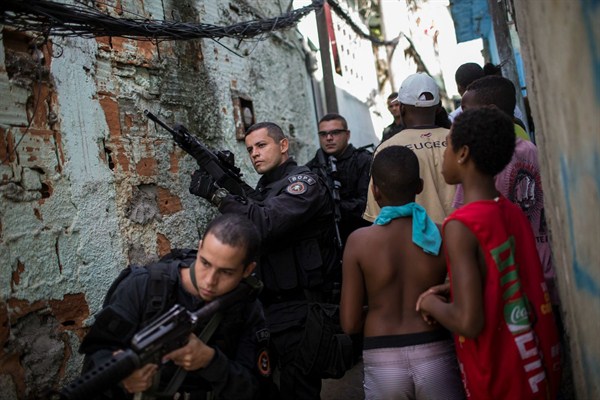The investigation of an elite police unit in Brazil for allegedly trying to cover up the disappearance of a Rio de Janeiro man may represent an opportunity to restore the public’s trust in the rule of law, and perhaps repair the reputation of a controversial program to pacify favelas.
The disappearance of Amarildo da Souza, a 47-year-old bricklayer who was last seen by witnesses in July 2013 being led into a local police base in Rio’s Rocinha favela, provoked immediate outrage. Residents and civil society groups demanded justice; prosecutors soon launched an investigation that ultimately resulted in charges of murder, kidnapping and other offenses against 25 officers from the base. Their trials are ongoing. Recently, the case has expanded even further, offering the authorities a new chance to build trust in a policing strategy that has garnered impressive results while provoking outrage over harsh tactics.
A recent analysis by prosecutors of security camera footage outside the Rocinha police base has implicated officers from the elite Police Special Operations Battalion unit—known by its Portuguese acronym, BOPE—in a conspiracy to conceal da Souza’s death. A review of the footage during the ongoing trial of the 25 officers already charged detected an object the size and shape of a human body in the bed of a BOPE truck, filmed leaving Rocinha hours after da Souza disappeared. While BOPE, a key pillar of Rio’s public security strategy, has already faced suspicion over its presence in Rocinha on the night of da Souza’s disappearance, none of its officers have been charged to date. But prosecutors in June announced that they will investigate BOPE’s involvement based on the footage. The unit took 14 officers off the street pending that investigation, and Rio’s governor, Luiz Fernando Pezao, said judicial authorities would be given a free hand in their inquiry.

